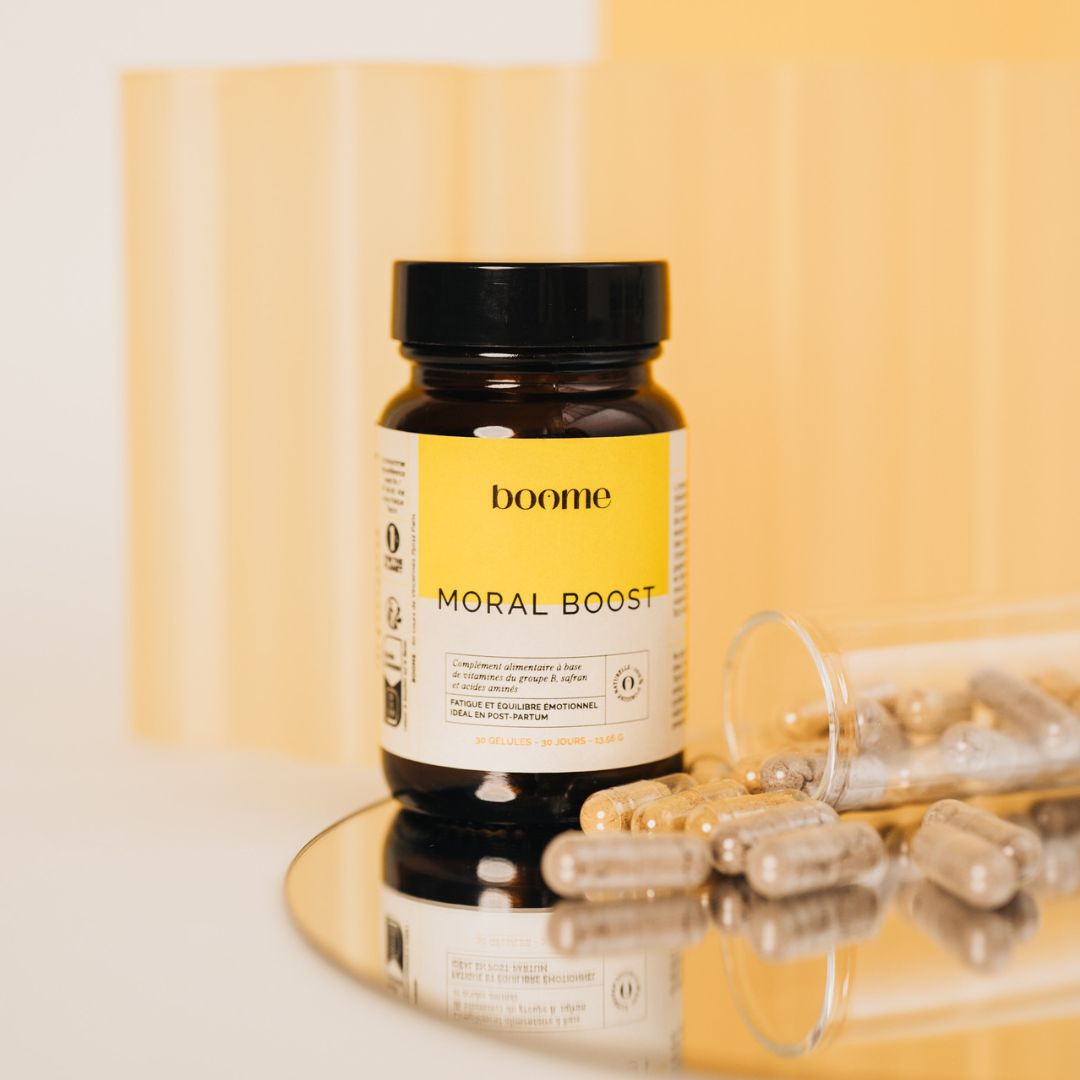
This is THE question that worries many pregnant women: what are we allowed to eat or drink during pregnancy? Should we say goodbye to all the little pleasures of everyday life? Some habits can also be harder to break than others... especially when you're addicted to your morning coffee!
Caffeine is often questioned and gives rise to many questions about potential adverse effects. Especially since it's not only found in coffee, but also in other types of beverages, such as Coke, tea, and other energy drinks.
So what are the real effects of caffeine on the unborn baby? What are the recommendations of various health authorities regarding caffeine consumption during pregnancy? What are the alternatives? Let's take a look!
The effects of caffeine on the fetus
When a pregnant woman consumes caffeine, it crosses the placental barrier and can reach the baby. In addition, from the second trimester of pregnancy onward, caffeine's elimination is slower, and its effects are therefore more intense.
Many researchers have since become interested in the potential negative effects of caffeine on fetal development. Among the most common concerns are the impact on birth weight and disruptions in brain development.
Impact on birth weight
A recent study published in the British Medical Journal found that high daily caffeine consumption during pregnancy could lead to an increased risk of low birth weight. Other studies go even further, adding that this low birth weight could subsequently lead to growth retardation. Birth weight is an important indicator of a baby's health, and low birth weight can therefore be associated with long-term health problems.
Disruptions to proper brain development
Regarding fetal brain development, studies show that excessive caffeine consumption during pregnancy may be associated with neurological problems in the child. Attention deficits and behavioral disorders have been suggested. However, it is important to note that the evidence in this area is still limited and further research is needed to confirm these potential associations.
Some studies have also suggested a link with a risk of miscarriage during the first trimester of pregnancy, but this risk has not been formally established, as most pharmacological studies on the subject are only observational.
It should be noted that testing on pregnant women is prohibited, so these studies are purely observational: the aim is to medically monitor pregnant women and determine whether caffeine consumption has any positive or negative consequences on their health or that of their future child. The results of these studies therefore always remain cautious, and sometimes even incomplete. This is why many scientists and doctors are calling for vigilance regarding caffeine consumption and are calling for an even stricter review of current health recommendations.
How much coffee should you consume while pregnant?
Currently, recommendations vary depending on the country and the organization, but all recommend moderate coffee consumption, especially during the preconception period and the first months of pregnancy.
According to the World Health Organization (WHO), this moderate consumption would be around 300 milligrams of caffeine per day. To give you a guide, an average cup of classic coffee (150 milliliters) contains about 100 milligrams of caffeine, so that's about 3 cups per day.
The European Food Safety Authority (EFSA) is stricter and recommends a daily caffeine consumption of less than 200 milligrams, or a maximum of 2 cups per day.
Note that the amount of caffeine contained in a cup of coffee can vary considerably depending on factors such as the type of coffee consumed (instant coffee, filter coffee, espresso, etc.), the type of beans, the brand, the preparation method or even the size of the cup.
What's the alternative? If you can't live without your 3 or 4 cups of coffee a day, we recommend trying a low-caffeine, or even decaffeinated, coffee. Be careful, however, to choose a solvent-free decaffeinated coffee, meaning one with a non-harmful extraction method. And to compensate, why not treat yourself to a small square of dark chocolate?
What about other drinks?
Besides coffee, many other drinks also contain caffeine.
> Carbonated beverages , such as soda, can contain caffeine, although generally in lower amounts than coffee. Unsurprisingly, it's recommended to limit your consumption of these drinks, not only because of their caffeine content, but also because of their high sugar and calorie content, which can contribute to excessive weight gain during pregnancy. Thinking of all you Coke addicts out there, we know that withdrawal is tough!
What's the alternative? Today, there are many carbonated beverages that can be just as enjoyable to drink: some of our favorites include kombucha, lemonade, and even ginger sparkling water (which also has the added benefit of easing morning sickness). However, limit fruit juices, which are often too sweet.
> Energy drinks are another source of caffeine to consider. They often contain high amounts of caffeine, along with other stimulants, such as taurine. It is strongly recommended to avoid energy drinks during pregnancy due to their high caffeine content and potentially harmful effects on the health of the fetus.
What's the alternative? If you're lacking energy, we recommend turning to nutritional supplements tailored to your pregnancy. Our pregnancy vitamins contain all the ingredients to help you limit deficiencies and stay in top shape.
> Not everyone knows this, but caffeine and theine are actually one and the same molecule. The dosages are not the same: a classic cup of tea (250 ml) contains on average 40 mg, which is certainly a much lower dose of caffeine than a coffee, but it is not neutral. It is therefore recommended to choose teas with a low caffeine content, such as decaffeinated green tea (always without solvent).
What's the alternative? If you're craving a hot drink, herbal tea will be your best ally during pregnancy, and it also has many benefits. It's up to you to choose the right herbs: we say yes to lemon balm, ginger, verbena, linden, thyme, or orange blossom teas. However, we avoid herbal teas made with chamomile, sage, hops, or fennel.
In conclusion, the question of whether coffee is safe to consume during pregnancy raises legitimate concerns. To date, coffee and other caffeinated products are not among the foods prohibited for expectant mothers. However, it is recommended not to go to excess and to know how to consume it in small quantities: know how to indulge yourself, yes, but always in moderation!
To learn more about foods prohibited during pregnancy , you can consult the following article.







